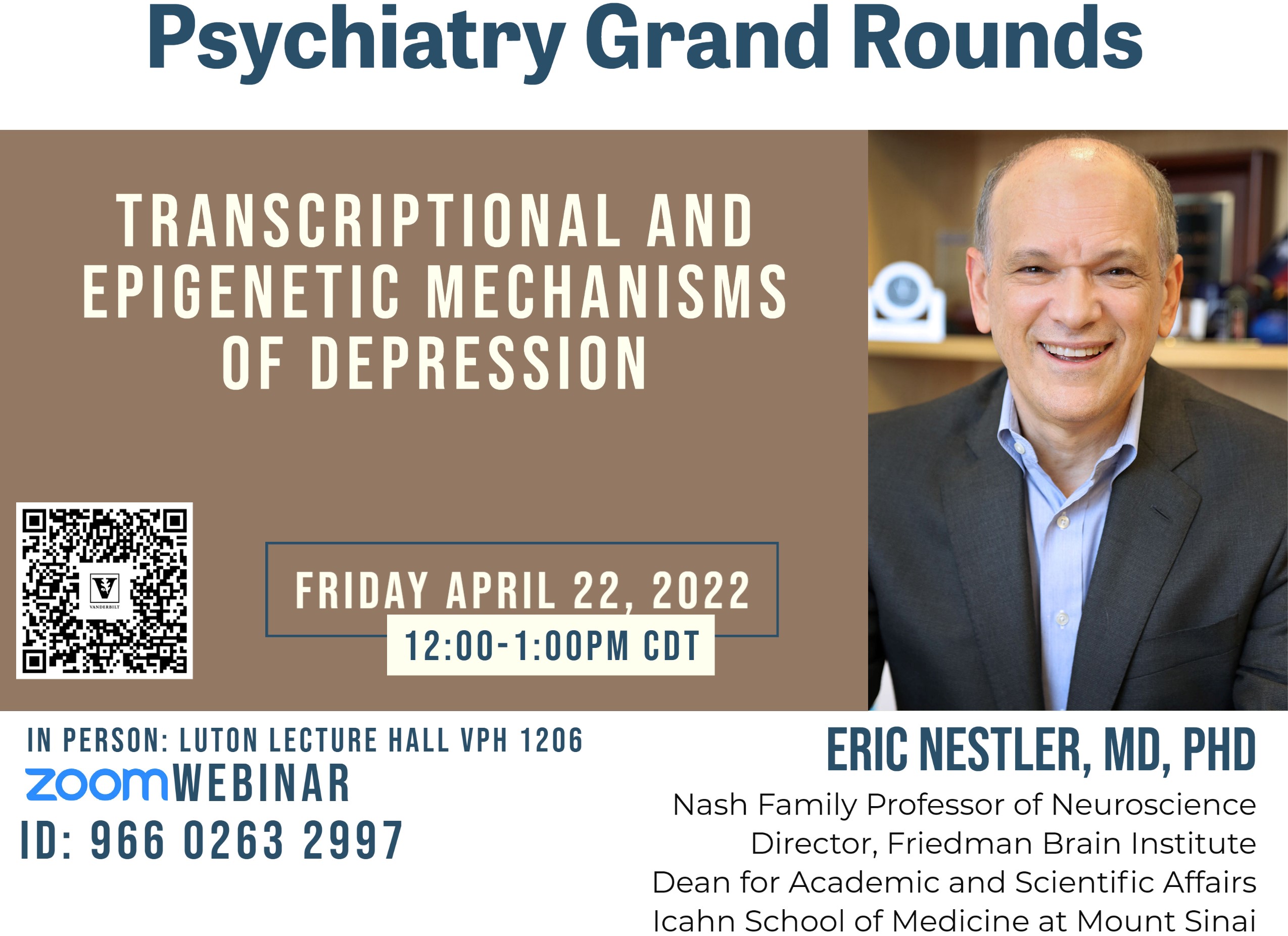
"Transcriptional and Epigenetic Mechanisms of Depression"
Objectives:
The activity is designed to help the learner:
•To understand general mechanisms of gene transcription and chromatin regulation (i.e., epigenetics).
•To understand how stress across the lifespan causes lasting changes in behavior through transcriptional and epigenetic mechanisms.
•To understand some of the mechanisms that differentiate susceptibility to stress versus more positive, adaptive (pro-resilience) responses.
.
About the Speaker:
Eric Nestler, MD, PhD, Dr. Nestler is the Nash Family Professor of Neuroscience at the Icahn School of Medicine at Mount Sinai in New York, where he serves as Dean for Academic and Scientific Affairs and Director of the Friedman Brain Institute. He received his B.A., Ph.D., and M.D. degrees, and psychiatry residency training, from Yale University. He served on the Yale faculty from 1987-2000, where he was the Elizabeth Mears and House Jameson Professor of Psychiatry, Pharmacology, and Neurobiology, and Director of the Division of Molecular Psychiatry. He moved to Dallas in 2000 where he was the Lou and Ellen McGinley Distinguished Professor and Chair of the Department of Psychiatry at The University of Texas Southwestern Medical Center until moving to New York in 2008.
Dr. Nestler is a member of National Academy Medicine (1998) and a Fellow of the American Academy of Arts and Sciences (2005). He is a past President of the American College of Neuropsychopharmacology (2011) and the Society for Neuroscience (2017). He is a founder and scientific advisory board chair for PsychoGenics, and a member of the Board of Directors of Berg Pharma. He also chairs the scientific advisory boards for One Mind, the Hope for Depression Research Foundation, and the Rainwater Foundation’s Tau Consortium. The author of ~700 publications and five books, the goal of Dr. Nestler’s research is to better understand the molecular basis of drug addiction and depression. His research uses animal models of these disorders to identify the ways in which drugs of abuse or stress change the brain to lead to addiction- or depression-like syndromes, and to use this information to develop improved treatments of these disorders.
CME/CE credit for Psychiatry Grand Rounds is only available during the live feed time and for a brief time immediately following. The code for this week's session is displayed at the opening and closing of the meeting and also in the Chair's Office Zoom Account Name during the meeting.
For CME/CE information about this session, please visit:
https://zoom.us/j/96602632997
This talk is sponsored by the
Department of Psychiatry and Behavioral Sciences
This educational activity received no commercial support.